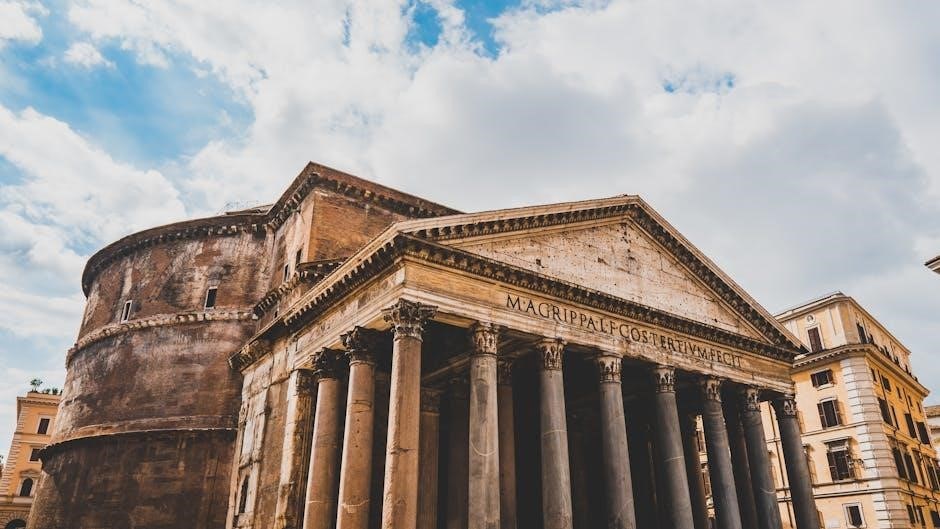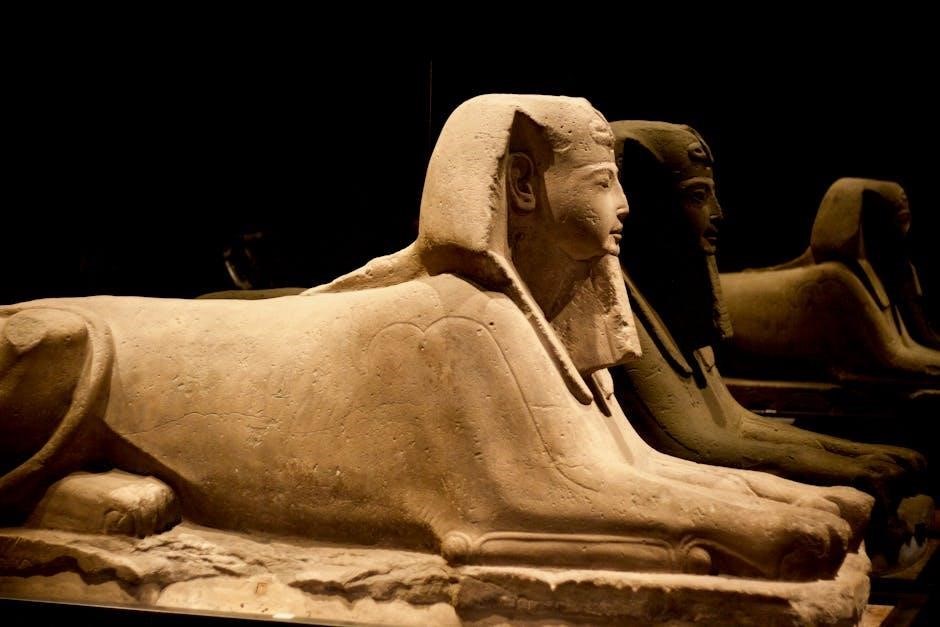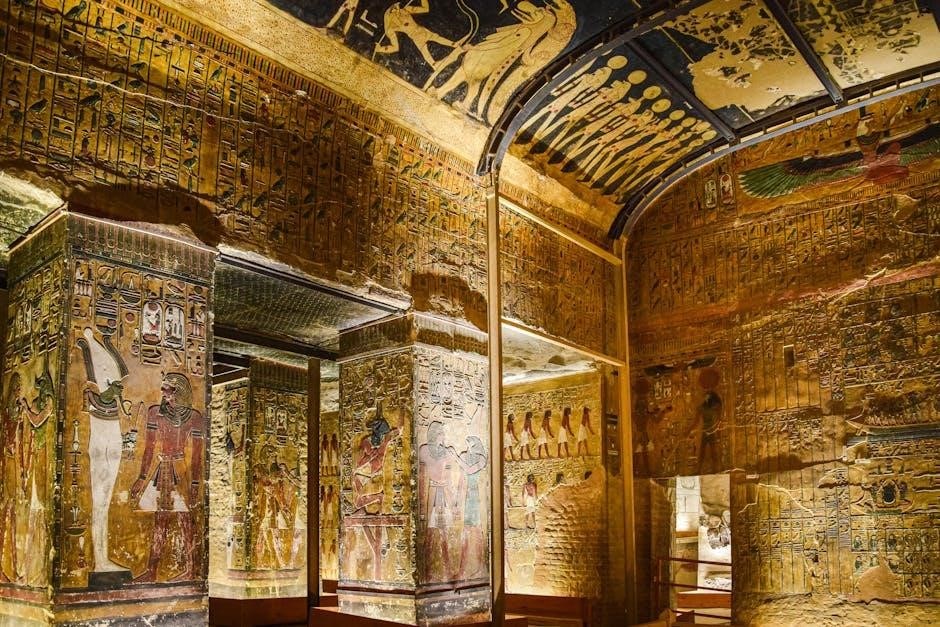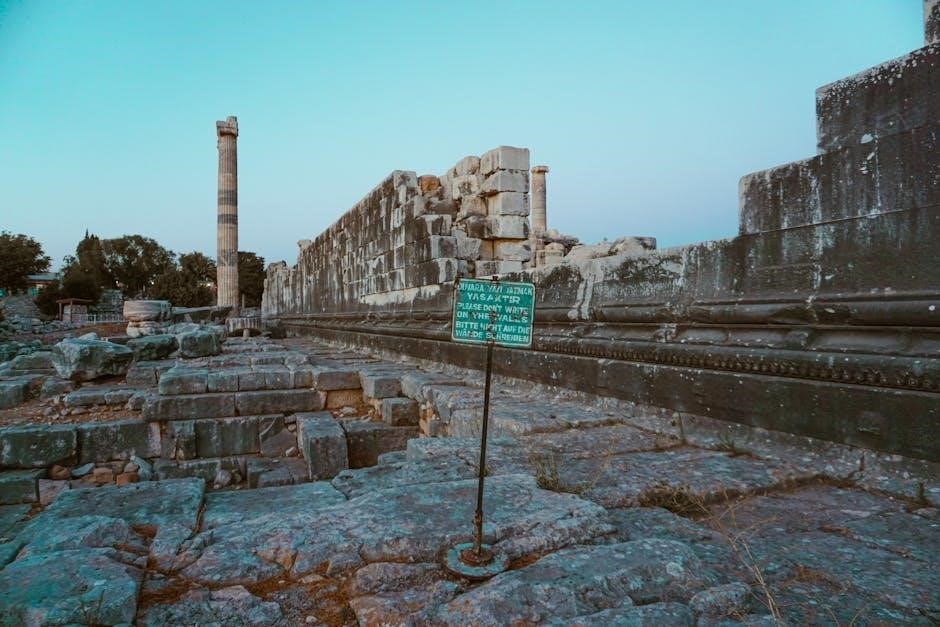Historiography, the study of how history is written, examines the methods and interpretations used by historians to understand the past. It bridges the gap between facts and narratives, shaping our understanding of historical events and their significance. By analyzing diverse perspectives and sources, historiography reveals the complexities of historical representation and its evolution over time.
Definition and Importance of Historiography
Historiography, the art and science of writing history, involves the study of historical methods, interpretations, and sources. It examines how historians select, analyze, and present information to construct narratives about the past. The importance of historiography lies in its ability to uncover the complexities of historical representation, revealing how ideologies, cultural contexts, and social structures shape our understanding of events. By critically analyzing historical accounts, historiography promotes objectivity and challenges biases, fostering a deeper comprehension of history’s significance. It also bridges the gap between facts and narratives, enabling historians to interpret the past in meaningful and interdisciplinary ways.


The Role of Historiography in Understanding the Past
Historiography plays a crucial role in understanding the past by analyzing how historical narratives are constructed and interpreted. It bridges the gap between facts and narratives, offering insights into the ideas and realities that shaped historical events. By examining diverse sources and perspectives, historiography connects the past to the present, enabling a deeper comprehension of historical contexts. It challenges biases and promotes objectivity, fostering a nuanced understanding of how historians have interpreted events over time. Ultimately, historiography helps uncover the complexities of history, making it a vital tool for grasping the evolution of human societies and cultures.

The Evolution of Historiography
Historiography has evolved significantly, transitioning from ancient narrative styles to modern, interdisciplinary approaches. This transformation reflects changing methodologies, perspectives, and societal values over time.
Ancient and Medieval Approaches to Historiography
Ancient and medieval historiography often focused on chronicling events rather than analyzing causes. Early historians like Herodotus and Sima Qian emphasized narrative and moral lessons. Medieval European historiography, influenced by religion, centered on divine providence. Scribes and monks preserved records, blending myth with fact. In Asia, under the Tang dynasty, historiography became bureaucratized, linking it to civil service. These approaches laid the groundwork for later methodologies, blending oral traditions with written records. The shift from oral to written histories marked a significant evolution, reflecting the cultural and intellectual contexts of their times.
Modern and Contemporary Historiographical Methods
Modern historiography emphasizes critical analysis and interdisciplinary approaches, moving beyond traditional narrative methods. Historians now incorporate social, cultural, and economic contexts to provide deeper insights. Marxist historiography highlights class struggle, while cultural approaches explore identities and social structures. Digital tools and new methodologies, such as big data analysis, are transforming research. Globalization has also broadened perspectives, encouraging comparative studies. Contemporary historians prioritize objectivity and inclusivity, challenging Eurocentric narratives. These advancements reflect a dynamic field, continuously refining its methods to better understand the past and its relevance to the present.

Major Approaches to Historiography
Historiography encompasses diverse methodologies, including Marxist, cultural, and social approaches, each offering unique frameworks for analyzing historical events and interpretations.
Marxist Historiography and Class Struggle
Marxist historiography emphasizes the role of class struggle and economic conditions in shaping historical events. It views history as a series of conflicts between social classes, driven by material interests and the means of production. This approach critiques traditional narratives by highlighting the influence of capitalism and exploitation. Marxist historians argue that historical change is rooted in economic transformations and the struggle between the bourgeoisie and the proletariat. By focusing on these dynamics, Marxist historiography provides a framework for understanding the structural forces that shape societies and the lives of individuals within them. This perspective has profoundly influenced modern historical analysis and critique.
Cultural Historiography and Social Context
Cultural historiography focuses on the social and cultural contexts that shape historical events and narratives. It examines the everyday lives, beliefs, and practices of individuals and groups, emphasizing how cultural identity and social structures influence historical outcomes. This approach prioritizes understanding the past through artifacts, texts, and cultural expressions, rather than solely political or economic factors. By exploring the intricate web of social dynamics and cultural meanings, cultural historiography offers a nuanced perspective on history, revealing how ordinary people and their experiences have shaped the course of human events. This methodology enriches historical analysis by highlighting the diversity of human experiences and cultural traditions.

Regional Historiographical Traditions
Regional historiographical traditions reflect diverse cultural and methodological approaches to studying the past. They emphasize local contexts, sources, and perspectives, often shaped by unique historical experiences and intellectual frameworks. These traditions provide insights into how different regions interpret their histories, illuminating the richness of global historical thought and practice.
European Historiographical Perspectives
European historiographical traditions have profoundly shaped the global study of history, emphasizing rigorous methodologies and critical analysis. From ancient Greek chronicles to modern academic practices, European approaches have evolved significantly. The Enlightenment introduced rational inquiry, while the 19th century saw the rise of positivism and historicism. Marxist and social history approaches later expanded the scope of historical inquiry. Today, European historiography balances traditional archival research with contemporary digital and interdisciplinary methods, reflecting diverse philosophical and cultural influences. These perspectives continue to dominate global historical scholarship, offering nuanced interpretations of the past and its relevance to the present.
Asian and African Historiographical Practices
Asian and African historiographical practices reflect diverse cultural and philosophical traditions, often emphasizing local contexts and oral narratives. In Asia, historical records like China’s official dynastic histories and India’s regional chronicles highlight bureaucratic and social structures. African historiography, traditionally rooted in oral traditions, has evolved to incorporate written records, blending indigenous perspectives with colonial influences. These practices often focus on communal memory and cultural identity, offering unique insights into the past. By integrating traditional and modern methodologies, Asian and African historiography provides a rich, multifaceted understanding of historical experiences, challenging and complementing Western-dominated narratives.

The Future of Historiography
Digital tools and interdisciplinary approaches are reshaping historiography, enabling innovative methods of historical analysis and presentation. This evolution promises to make history more accessible and engaging globally.
Digital Historiography and New Methodologies
Digital historiography is revolutionizing historical research through innovative technologies and methodologies. Tools like digital archives, big data analytics, and artificial intelligence enable historians to process vast amounts of information efficiently. Collaborative online platforms foster global scholarly interaction, while virtual reality and interactive media create immersive historical experiences. These advancements not only enhance the accuracy and accessibility of historical studies but also expand the scope of historiography, allowing for new perspectives and interdisciplinary approaches. Digital methods are reshaping how history is researched, written, and shared, ensuring its relevance in the modern world.
Interdisciplinary Approaches to Historical Study
Interdisciplinary approaches to historical study integrate insights from sociology, anthropology, economics, and literature to provide a more comprehensive understanding of the past. By combining diverse methodologies, historians can explore how social structures, cultural norms, and economic systems shaped historical events. This approach fosters a more nuanced analysis, revealing connections often overlooked in traditional historiography. Collaborations with other disciplines also encourage innovative research questions and methodologies, enriching the field of history. Such integration not only broadens the scope of historical inquiry but also enhances its relevance in addressing contemporary issues, making history a dynamic and evolving field of study.
Historiography bridges the past and present, offering insights into how history is written and interpreted. Its evolution reflects changing perspectives, ensuring its ongoing relevance in understanding human experiences.
Reflections on the Significance of Historiography
Historiography is crucial for understanding how historical narratives are constructed and interpreted. It reveals the complexities of representing the past, emphasizing the role of perspective, ideology, and context. By examining diverse approaches, historiography fosters critical thinking about the intentions and biases behind historical accounts. It bridges the gap between past events and present understanding, offering insights into how societies shape their identities. Through analyzing historiographical traditions, scholars gain a deeper appreciation of cultural and intellectual developments. Ultimately, historiography underscores the dynamic nature of history, highlighting its relevance in shaping contemporary thought and fostering a more inclusive understanding of human experiences.
Final Thoughts on the Study of Historiography
The study of historiography is essential for understanding the complexities of historical representation and interpretation. It challenges us to critically assess how narratives are shaped by cultural, ideological, and methodological frameworks. By examining diverse traditions and approaches, historiography fosters a deeper appreciation of the past and its relevance to the present. It encourages scholars to question assumptions and explore new perspectives, ensuring that history remains a dynamic and evolving field.
Ultimately, historiography highlights the importance of context and interpretation in shaping our understanding of human experiences. It underscores the need for interdisciplinary approaches and the integration of digital methodologies to enhance historical inquiry. As a result, the study of historiography remains vital for fostering critical thinking and intellectual curiosity about the past and its ongoing impact on the world.